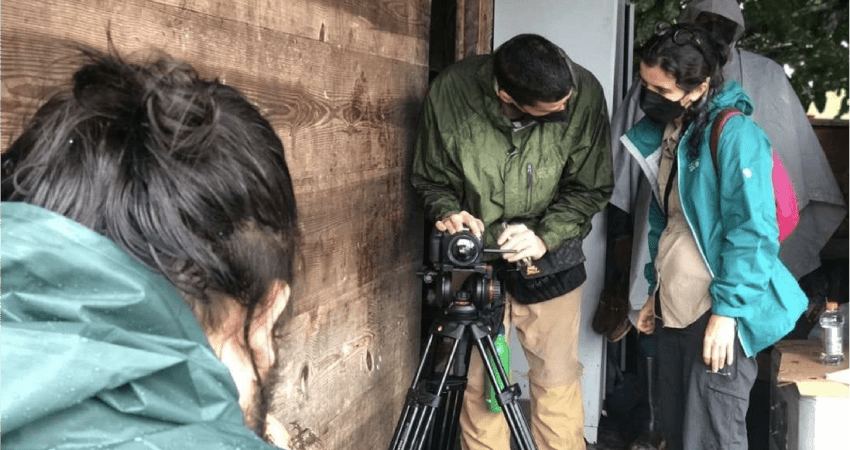IOM and FLACSO Costa Rica Train Communication Professionals from Mexico and Central America to Address Migration

San José (Costa Rica) - More than 50 journalists and media professionals from 6 countries participated in the first edition of the Specialized Course on Communication and Migration provided by the International Organization for Migration (IOM). The course promotes an ethical and responsible production of migration-related information and the comprehensive approach to this phenomenon in informative content.
The specialized program was developed in August in collaboration with the Latin American Faculty of Social Sciences (FLACSO Costa Rica) and involved journalists and communication professionals from public institutions in Mexico, Guatemala, El Salvador, Honduras, Costa Rica, and Panama. The course is part of the "Global Migration Media Academy", a global IOM initiative that seeks to combat xenophobia and the dissemination of misinformation on migration in the media.
The course consists of a general self training introductory module on communication and migration and three specialised modules. The introductory module provides a basic conceptual approach to migration. The first specialized module addresses the representation of migrants in communication products and seeks to provide tools for creating ethical and informed graphic and audiovisual content.
The last two modules target institutional communicators from government entities and media professionals and journalism students respectively. Each participant must take the first two modules and, according to their profile, one of the two specialized modules, to finally receive a joint certificate from IOM and FLACSO.
"It is not the same to read a headline that says, "More migrants take jobs from nationals in 2020" to one that mentions that "Migrant work contributed 13% to the country’s GDP in 2020". Although both are covering the same topic, they impact the way we read reality very differently", said Alexandra Bonnie, IOM’s Western Hemisphere Program Coordinator, the framework in which this initiative was developed.
"Participating in this course is a great opportunity for training at the level of institutional communication, since our approach, from the National Migration Service, is key to breaking stereotypes of discrimination and promoting empathy and respect for the human rights of vulnerable groups. Our expectations are always aimed at learning from collective experience and knowledge", said Aracelis Leoteau, Head of Public Relations at the National Migration Service of Panama, after participating in the training.
The Specialized Course on Communication and Migration is implemented under IOM’s Western Hemisphere Program, funded by the United States Department of State Bureau of Population, Refugees and Migration.